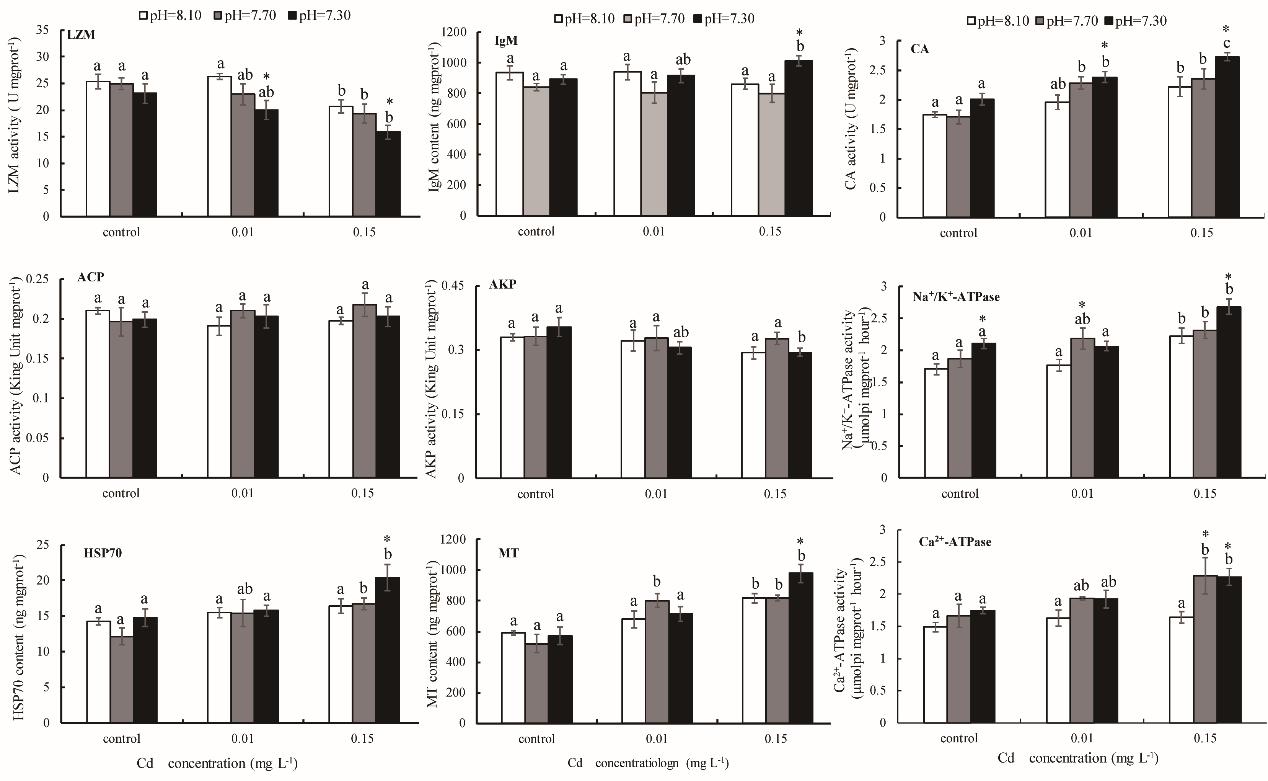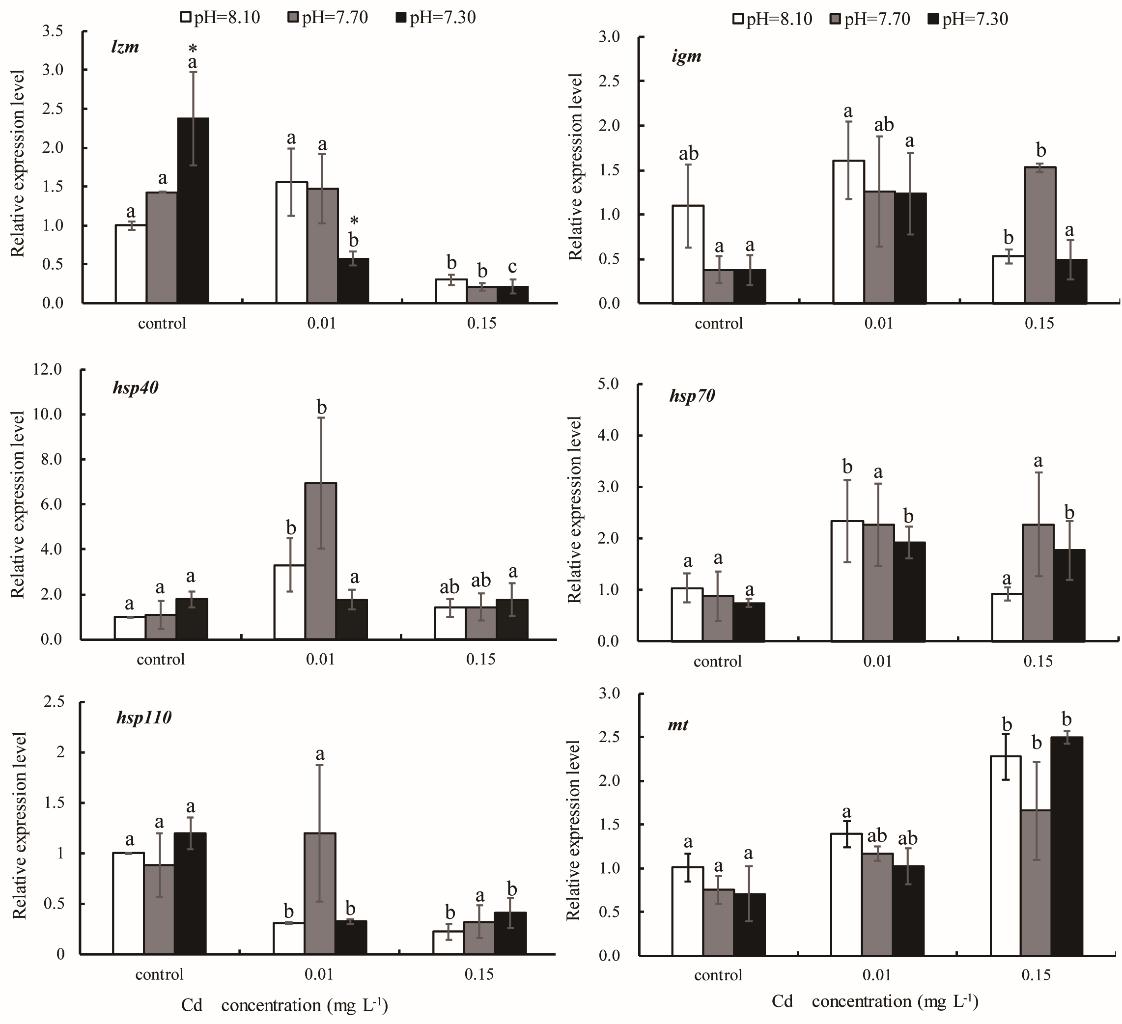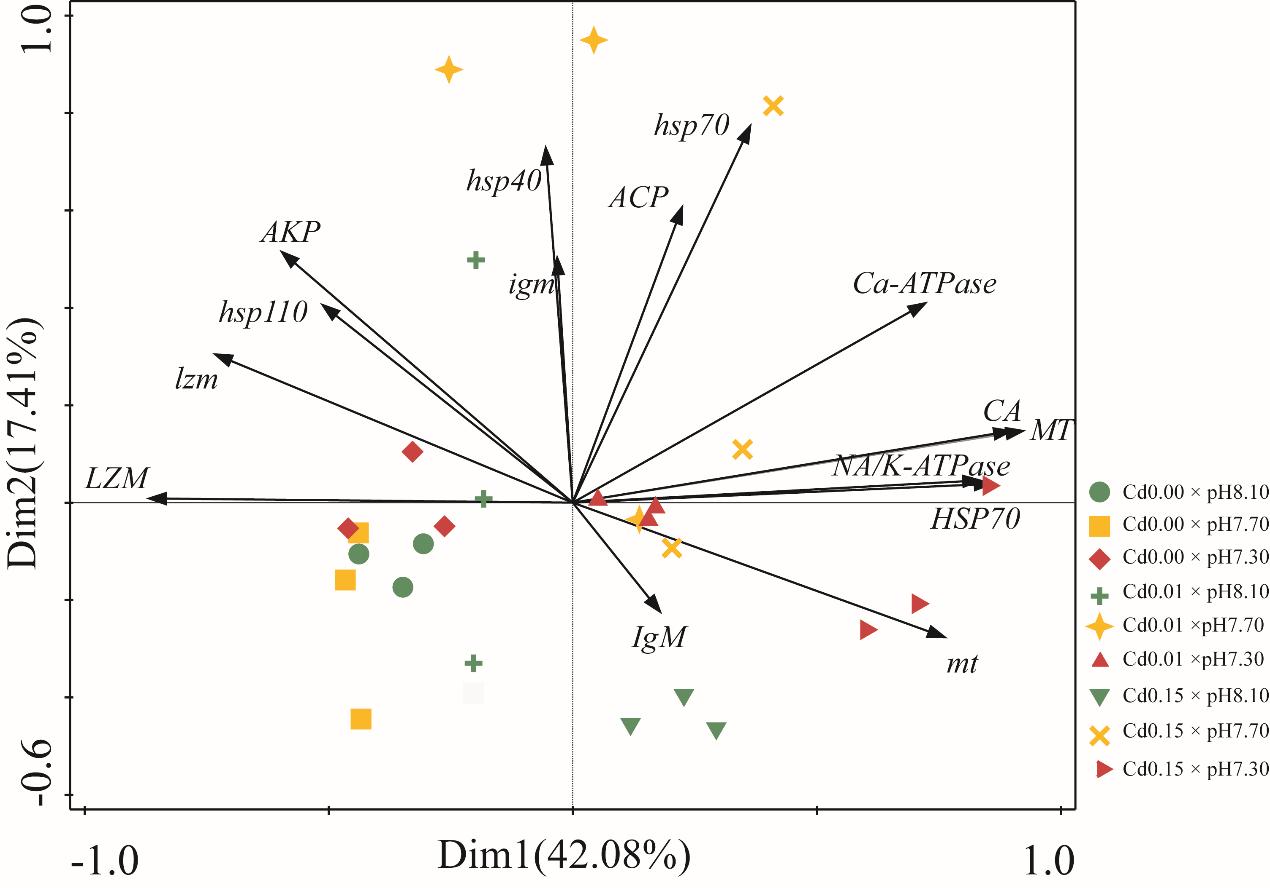Seawater acidification is a major threat to both calcifying and non-calcifying marine organisms, mostly affecting the immune system and biomineralization or the acid-base regulatory system.
Marine pollutants, such as cadmium (Cd), which is globally distributed in coastal ecosystems, do not affect organisms alone but commonly as combined stressors, especially in coastal ecosystems and estuaries, where anthropogenic and environmental stresses are high.
Current studies have found that seawater acidification can affect the solubility, adsorption and toxicity of metals to marine organisms, which greatly depends on the physical and chemical forms of the metals.
Recently, CUI Wenting of the research team led by Prof. DOU Shuozeng at Institute of Oceanology, Chinese Academy of Sciences (IOCAS), investigated the toxicological effects of Cd on the immune response and biomineralization of larval flounder Paralichthys olivaceus under seawater acidification. The study was published in Chemosphere (https://doi.org/10.1016/j.chemosphere.2021.132919).
The results showed that single seawater acidification and Cd exposure or combined exposure significantly affected the immune system-related enzyme activities. Lysozyme (LZM) activity was significantly inhibited by single seawater acidification and Cd exposure, whereas contents of IgM, HSP70 and MT were induced by seawater acidification or Cd exposure. The expressions of immune-related genes were upregulated (hsp70 and mt) or downregulated (lzm) under Cd exposure.
Of the biomineralization-related enzymes, activities of carbonic anhydrase (CA), Na+/K+-ATPase and Ca2+-ATPase increased under seawater acidification and Cd exposure, a potential mechanism in response to changes of acid-base balance induced by the stressors.
This study demonstrated that immune and biomineralization of the flounder responded more sensitively to Cd exposure than seawater acidification. Seawater acidification could aggravate the toxicological effects of Cd exposure on the two physiological functions, while high Cd exposure augmented their responses to seawater acidification.
This work was supported by the Special Project on Blue Granary Science and Technology Innovation under the National Key R&D Program and the National Natural Science Foundation of China (NSFC) under the program Science Fund for Creative Research Groups.

Fig. 1 Effects of seawater acidification and Cd exposure on immune system and biomineralization biomarkers in flounder larvae. Different letters indicate significant differences in results between the Cd treatments and the controls at the same pH (P<0.05). Asterisks indicate significant differences in results between acidic treatments and the controls at the same Cd concentration (P<0.05).

Fig. 2 Effects of seawater acidification and Cd exposure on biomineralization-related biomarkers in flounder larvae

Fig. 3 Graphical representation of principal component analysis (PCA) conducted on all biological parameters in flounder larvae
Wenting Cui, Jinhu Liu, Liang Cao, Shuozeng Dou. Toxicological effects of cadmium on the immune response and biomineralization of larval flounder Paralichthys olivaceus under seawater acidification. Chemosphere, 2022. https://doi.org/10.1016/j.chemosphere.2021.132919.
(Editor: ZHANG Yiyi)
|
|

Address: 7 Nanhai Road, Qingdao, Shandong 266071, China
Tel: 86-532-82898902 Fax: 86-532-82898612 E-mail: iocas@qdio.ac.cn


